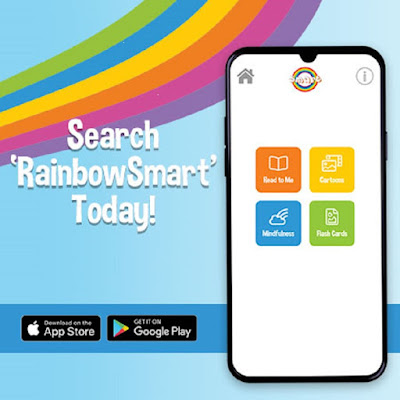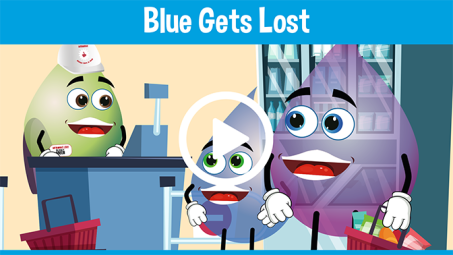Fostering Personal Development in Kids: Nurturing Lifelong Growth
 |
| rainbowsmart app |
Personal development is not limited to
adults; it's a lifelong journey that begins in childhood. Empowering kids with
the tools for personal growth can lay the foundation for a fulfilling and
successful life. Here are key insights into the importance and strategies for
fostering personal development in children:
The Significance of Personal Development
for Kids:
Personal
development for children goes beyond academic achievements. It
encompasses emotional intelligence, self-awareness, social skills, and
resilience. These qualities equip kids to face life's challenges with
confidence and empathy. Personal development also nurtures a growth mindset,
encouraging them to embrace learning and adaptability.
1. Encourage Self-Awareness:
Help children understand their emotions,
strengths, and areas for growth. Encourage journaling, self-reflection, and
open discussions about feelings and experiences. Self-awareness is the
cornerstone of personal development.
2. Foster a Growth Mindset:
Teach kids that challenges and failures are
opportunities for growth. Encourage them to view setbacks as learning
experiences. This mindset shift builds resilience and a positive attitude
towards life's ups and downs.
3. Promote Goal Setting:
Encourage children to set achievable goals.
Whether it's learning a new skill or completing a project, goal setting
instills the value of determination and perseverance.
4. Develop Social Skills:
Personal development extends to
interpersonal relationships. Teach kids effective communication, empathy, and
conflict resolution. These skills form the basis for healthy relationships and
cooperation.
5. Cultivate Independence:
Allow children to make age-appropriate
choices and decisions. Independence fosters confidence and responsibility, key
elements of personal development.
6. Embrace Creativity and Curiosity:
Nurture creativity and curiosity through
exploration, play, and exposure to various activities. These qualities
encourage a love for learning and problem-solving.
7. Encourage Mindfulness:
Introduce mindfulness practices like deep breathing and meditation. These techniques help children manage stress, build resilience, and stay present in the moment.
8. Provide Role Models:
Surround children with positive role models
who exemplify personal development. Whether it's family members, teachers, or
community leaders, these role models inspire and guide kids.
9. Celebrate Achievements:
Recognize and celebrate small achievements
along the way. Positive reinforcement motivates kids to continue their personal
development journey.
10. Cultivate a Love for Reading:
Reading opens doors to knowledge and
self-discovery. Encourage kids to explore diverse books that inspire personal
growth and empathy.
Fostering Social Development in Kids: Building the Foundation for a
Connected World
Social development in children is a vital
aspect of their growth and well-being. It encompasses a range of skills and
behaviors that enable kids to interact, communicate, and build meaningful
relationships with others. Nurturing social development from an early age is
essential, as it equips children with the tools they need to thrive in a
socially interconnected world. Here are key insights into the significance and
strategies for fostering social development in kids:
The Significance of Social Development for Kids:
Social
development is about more than just making friends; it's about
acquiring the skills and competencies necessary to navigate various social
contexts successfully. It plays a crucial role in a child's overall
development, impacting their emotional intelligence, communication abilities,
and self-esteem.
1. Encourage Communication:
Effective communication is at the heart of
social development. Encourage children to express themselves clearly and
actively listen to others. Engage in conversations that promote open dialogue.
2. Teach Empathy:
Empathy is the ability to understand and
share the feelings of others. Encourage kids to consider other people's
perspectives and feelings. Books, discussions, and real-life examples can help
cultivate empathy.
3. Promote Cooperation:
Engage children in activities that require
teamwork and collaboration. Board games, group projects, and sports can foster
a sense of cooperation and shared goals.
4. Develop Conflict Resolution Skills:
Teach children how to manage conflicts
peacefully and constructively. Encourage them to express their feelings, listen
to others, and work together to find solutions.
5. Encourage Play and Interaction:
Play is a natural way for children to
develop social skills. Encourage kids to engage in imaginative and cooperative
play with peers.
6. Provide Social Opportunities:
Enroll children in social activities and
clubs where they can meet new friends and interact with a diverse group of
people.
7. Be a Role Model:
Demonstrate positive social behaviors in
your interactions with others. Children often learn social skills by observing
adults.
8. Embrace Diversity:
Teach children to appreciate and respect
differences in culture, race, religion, and abilities. Encourage discussions
about diversity and inclusion.
9. Develop Emotional Regulation:
Help children identify and manage their
emotions. Emotional regulation is essential for healthy social interactions.
10. Foster Independence:
Encourage age-appropriate independence.
Kids who can make decisions and solve problems on their own are more confident
in social situations.
In conclusion, fostering social development
in kids is a multifaceted endeavor that requires a holistic approach. It
involves nurturing essential skills such as communication, empathy, cooperation,
and conflict resolution. By providing opportunities for positive social
interactions and offering guidance and support, parents, educators, and
caregivers can help children develop the social competencies they need to
thrive in a diverse and interconnected world. Social development is not only
about building relationships; it's about equipping children with the tools they
need to lead fulfilling, connected lives.
Personal development for kids is about
nurturing the whole child—mind, body, and spirit. It's about equipping them
with essential life skills, values, and a mindset that empowers them to thrive
in an ever-changing world. By providing opportunities for self-discovery,
growth, and resilience, parents, educators, and caregivers can help children
embark on a lifelong journey of personal development, setting them on the path
to a brighter and more fulfilling future.



Comments
Post a Comment